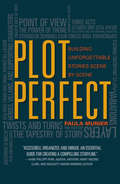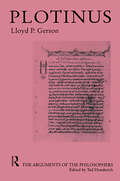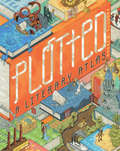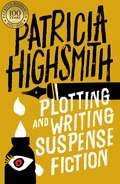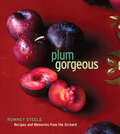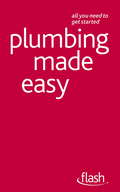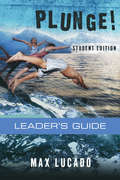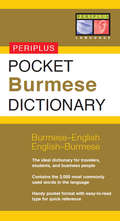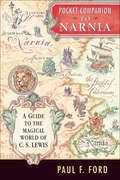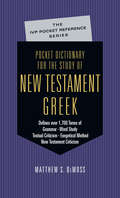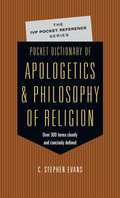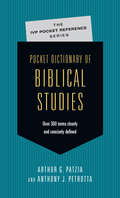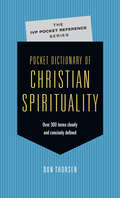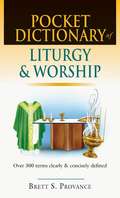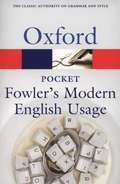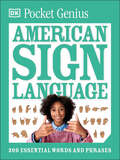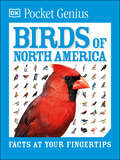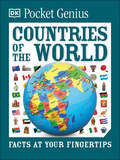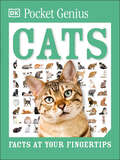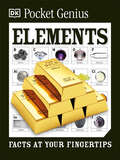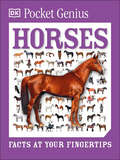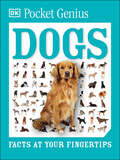- Table View
- List View
Plot Perfect: How to Build Unforgettable Stories Scene by Scene
by Paula MunierBuild an Exceptional Plot, One Scene at a Time! Think of your favorite story--the one that kept you turning pages late into the night, the one with a plot so compelling, so multilayered, so perfect that you couldn't put it down. How can you make your own plots--in your novels, short stories, memoirs, or screenplays--just as irresistible? Plot Perfect provides the answer. This one-of-a-kind plotting primer reveals the secrets of creating a story structure that works--no matter what your genre. It gives you the strategies you need to build a scene-by-scene blueprint that will help elevate your fiction and earn the attention of agents and editors. Inside, literary agent, editor, and author Paula Munier shows you how to: Devise powerful plots and subplots and weave them together seamlessly Organize your scenes for the greatest impact Develop captivating protagonists, worthy antagonists, and engaging secondary characters Use dialogue, setting, tone, and voice to enhance your plot Layer, refine, and polish your storyline Define your story in terms of its theme Filled with writing exercises, plotting templates, and expert advice, Plot Perfect helps you dive into the intricacies of plot--and write a compelling story that readers won't be able to resist.
Plotinus-Arg Philosophers (Hackett Classics Ser.)
by Lloyd P. GersonFirst published in 1999. Routledge is an imprint of Taylor & Francis, an informa company.
Plotted: A Literary Atlas
by Daniel Harmon Andrew DegraffThis incredibly wide-ranging collection of maps--all inspired by literary classics--offers readers a new way of looking at their favorite fictional worlds. <P><P>Andrew DeGraff's stunningly detailed artwork takes readers deep into the landscapes from The Odyssey, Hamlet, Pride and Prejudice, Invisible Man, Lord of the Flies, A Wrinkle in Time, Watership Down, The Handmaid's Tale, and more. Sure to reignite a love for old favorites and spark fresh interest in more recent works as well, Plotted provides a unique new way of appreciating the lands of the human imagination.
Plotting and Writing Suspense Fiction
by Patricia HighsmithNamed by The Times as the all-time number one crime writer, Patricia Highsmith was an author who broke new ground and defied genre clichés with novels such as The Talented Mr Ripley and Strangers on a Train.In the classic creative writing guide Plotting and Writing Suspense Fiction, Highsmith reveals her secrets for producing world-class crime and thrillers, from imaginative tips for generating ideas to useful ways of turning them into stunning stories.
Plum Gorgeous: Recipes and Memories from the Orchard
by Romney SteeleIn this cookbook and memoir with photos, &“fruits . . . star as the ingredients in [a] delectable ode to orchard fare.&” (More magazine) Inside Plum Gorgeous, Romney &“Nani&” Steele follows her successful cookbook-memoir My Nepenthe with sixty seasonally inspired recipes that celebrate the &“romance of fruit.&” Capturing the essence, beauty, and deliciousness of cooking with seasonal fruits, Steele offers simple and seductive recipes that intertwine with the seasons in which each fruit is harvested. Savory recipes like Coriander Steak with Blackberry Vinaigrette and Kumquat Couscous Salad with Fried Haloumi Cheese are presented alongside sweet treats like Passionfruit Chocolate Truffles and Plum Soup with Basil Ice Cream. Interspersed throughout Plum Gorgeous are beautiful, full-color photographs by Sara Remington and reminiscences from the year that Steele spent living in an orchard in Big Sur, along with fruit lore and select notes on handling and preserving fruit. In an accessible but imaginative way, Plum Gorgeous beautifully reveals the many layers and flavor profiles of fruit while celebrating the memories inspired by each season's beauty and bounty.
Plum Gorgeous: Recipes and Memories from the Orchard
by Romney SteeleIn this cookbook and memoir with photos, &“fruits . . . star as the ingredients in [a] delectable ode to orchard fare.&” (More magazine) Inside Plum Gorgeous, Romney &“Nani&” Steele follows her successful cookbook-memoir My Nepenthe with sixty seasonally inspired recipes that celebrate the &“romance of fruit.&” Capturing the essence, beauty, and deliciousness of cooking with seasonal fruits, Steele offers simple and seductive recipes that intertwine with the seasons in which each fruit is harvested. Savory recipes like Coriander Steak with Blackberry Vinaigrette and Kumquat Couscous Salad with Fried Haloumi Cheese are presented alongside sweet treats like Passionfruit Chocolate Truffles and Plum Soup with Basil Ice Cream. Interspersed throughout Plum Gorgeous are beautiful, full-color photographs by Sara Remington and reminiscences from the year that Steele spent living in an orchard in Big Sur, along with fruit lore and select notes on handling and preserving fruit. In an accessible but imaginative way, Plum Gorgeous beautifully reveals the many layers and flavor profiles of fruit while celebrating the memories inspired by each season's beauty and bounty.
Plumbing Made Easy: Flash
by Roy TreloarThe books in this bite-sized new series contain no complicated techniques or tricky materials, making them ideal for the busy, the time-pressured or the merely curious. Plumbing Made Easy is a short, simple and easy to follow guide to mastering some simple plumbing jobs that might occur on an everyday basis. By learning some basic skills and techniques you can learn how to carry out repairs and simple projects - in just 96 pages. Ideal for the busy or the thrifty, Plumbing Made Easy is a quick, to-the-point guide for those who want to complete simple plumbing jobs quickest time possible.
Plumbing Made Easy: Flash
by Roy TreloarThe books in this bite-sized new series contain no complicated techniques or tricky materials, making them ideal for the busy, the time-pressured or the merely curious. Plumbing Made Easy is a short, simple and easy to follow guide to mastering some simple plumbing jobs that might occur on an everyday basis. By learning some basic skills and techniques you can learn how to carry out repairs and simple projects - in just 96 pages. Ideal for the busy or the thrifty, Plumbing Made Easy is a quick, to-the-point guide for those who want to complete simple plumbing jobs quickest time possible.
Plunge!: Come Thirsty Student Edition Leader's Guide
by Max LucadoThe teenage soul is a thirsty machine, always looking, always yearning, always searching for that which is refreshing and filling. Plunge! is designed for teenagers who long to drink, to drink from the W-E-L-L.Throughout the course of this study , teens will seek out four ways in which their thirst can be satisfied. God's Work. God's Energy. His Lordship. His Love.
Pocket Book of Quotations
by Henry DavidoffA collection of quotes and, in the case of those that appeared first in a foreign language, the original wording has been given as well in English version.
Pocket Burmese Dictionary
by Stephen NolanThis is a pocket sized Burmese Dictionary Intended for use by tourists, students, and business people travelling to Myanmar Pocket Burmese Dictionary is an essential tool for communicating in Burmese. A great way to learn Burmese, it features all the essential Burmese vocabulary appropriate for beginning to intermediate students. It’s handy pocket format and easy-to read type will make any future trip to Myanmar much easier. In addition to being an excellent English to Burmese dictionary and Burmese to English dictionary Pocket Burmese Dictionary contains important notes on the Burmese language, Burmese grammar, and Burmese pronunciation. All Burmese word are written in Romanized form as well as authentic Burmese script (mranma akkha. ra) so that in the case of difficulties the book can simply be shown to the person the user is trying to communicate with. This dictionary contains: The 3,000 most commonly used words in the Burmese language. Burmese–English and English–Burmese sections. An introduction to the Burmese language. Romanized Burmese and Burmese script (i>mranma akkha. ra). Information on Burmese grammar. Information on pronouncing Burmese. Other books from this bestselling series you might enjoy include: Pocket Vietnamese Dictionary, Pocket Cambodian Dictionary, Pocket Thai Dictionary, and Pocket Malay Dictionary.
Pocket Companion to Narnia: A Guide to the Magical World of C.S. Lewis
by Paul F. FordThe pocket guide is an adventurer's passport to the land of Narnia. From Aslan, the great lion, to Zardeenah, the mysterious lady of the night, this comprehensive and accessible companion contains hundreds of alphabetically arranged entries covering all the characters, events, places, and themes that Lewis magically wove into his timeless and magical world. This little book will be perfect for the millions of kids and parents who already love the Narnia books and want to go deeper into that world, as well as for those newly drawn to the story by the Narnia movie. The Pocket Companion is a perfect gift book, a natural movie tie-in, and will continue to help readers and fans get closer to the magical world of Narnia for years to come.
Pocket Dictionary for the Study of New Testament Greek (The IVP Pocket Reference Series)
by Matthew S. DeMossIf you are beginning your study of New Testament Greek or Greek exegesis, this book is for you! From ablative to zeugma, it defines the tangled terms that infest Greek textbooks, grammars and lexicons. Here is the book to deliver you from late-night ponderings of the predicate and frantic fumings over the fricative. It is the indispensable lexicon to that third language that is neither Greek nor recognizable English: the technical vocabulary of grammarians, lexicographers, linguists and Greek instructors. What's more, this pocket dictionary gives you the inside edge on the terminology of exegesis, textual criticism and biblical criticism. Careful definitions, helpful examples and copious cross-references make this economically priced, brief dictionary easy to use. And its convenient size will make it a constant companion in your study of the Greek New Testament.
Pocket Dictionary of Apologetics & Philosophy of Religion
by C. Stephen EvansThe Pocket Dictionary of Apologetics Philosophy of Religion is designed to be a companion to your study of these two related disciplines. Terms, from a posteriori to worldview, Apologists, from Abelard to Van Til, Philosophers of religion, from Alston to Wolterstorff, Movements, from analytic philosophy to voluntarism, Apologetic arguments, from the cosmological to the wager, Theologies, from Arminianism to Zoroastrianism.
Pocket Dictionary of Biblical Studies: Over 300 Terms Clearly Concisely Defined (The IVP Pocket Reference Series)
by Arthur G. Patzia Anthony J. PetrottaPocket Dictionary of Biblical Studiesgenre criticismtradition criticismagraphavaticinium ex eventuFrühkatholizismusWissenschaftAleppo CodexZadokite Documentacrosticwoe oracleAugustinian hypothesisYahwist sourcecodexWestern textPocket Dictionary of Biblical Studies
Pocket Dictionary of Christian Spirituality (The IVP Pocket Reference Series)
by Don ThorsenPocket Dictionary of Christian Spiritualityterms and ideastraditions and movementspractices and ritualstexts and theologyPocket Dictionary of Christian Spirituality
Pocket Dictionary of Liturgy & Worship
by Brett Scott ProvanceThe range of topics includes practices, such as altar call and benediction-rites, such as baptism and Eucharist symbols, such as incense and dove texts, such as Apostolic Constitutions and Book of Common Prayer gestures, such as kneeling and sign of the cross vestments, such as alb and robe musical terms, such as a cappella and Agnus Dei observances.
Pocket Fowler's Modern English Usage (2nd edition)
by Robert AllenThis invaluable reference work offers the best advice on English usage, drawing on the unrivaled resources of Oxford's English Dictionaries program and language monitoring. This second edition of the "Pocket Fowler" harks back to the original 1926 edition of A Dictionary of Modern English Usage by Henry Fowler, widely regarded as the finest such guide in print. Updated with the use of the Oxford English Corpus, a database of over two billion words, and with up-to-date entries on the language of emails and the Internet, the new edition answers your most frequently asked questions about language use. Should you use a split infinitive or a preposition at the end of a sentence? Is it "infer" or "imply"? "Who" or "whom"? What are the main differences between British and American English? Over 4,000 entries offer clear recommendations on issues of grammar, pronunciation, spelling, confusable words, and written style. Real examples are drawn from classic and contemporary literary sources, newspapers and magazines, and the Internet. Pocket Fowler's Modern English Usage, Second Edition is an indispensable companion for anyone who wants to use the English language effectively.
Pocket Genius American Sign Language: 200 Essential Words and Phrases (Pocket Genius)
by DKStart learning American Sign Language (ASL) with this guide to the most essential everyday ASL phrases and words.If you are a parent looking for an accessible guide to ASL basics for your hearing child, then look no further than Pocket Genius American Sign Language.Perfect for our young readers aged 8-12, this guide combines clear, step-by-step illustrations with simple, to-the-point instructions for signing words, phrases, and sentences in ASL.This compact ASL guide for children offers: A pocket-sized but detailed guide, fitting all the important information into one small package.Easy-to-follow chapters and information suitable for children aged 8+ supported by simple illustrations, instructions, and top tips to learn ASL.Clear step-by-step illustrations make it easy to practice and master each sign.This Pocket Genius series is perfect for all hearing children, whether they are young readers just beginning to explore ASL or little geniuses who are experts already!The illustrations also capture the nuances of each sign–from hand movements to body language and facial expressions–to help your child master the language basics quickly and easily. The pocket size of this book lets them carry it wherever they are–at home, in school, or on the playground.
Pocket Genius Birds of North America (Pocket Genius)
by DKThe ultimate pocket-sized guide to more than 200 of North America&’s feathered residents. Can American dippers stay underwater for as long as half a minute? Why does the golden eagle have feathered legs while the bald eagle&’s legs are bare? Is the long-legged, scrappy roadrunner truly able to run circles around a rattlesnake? Whether you are a budding bird-watcher hoping to find species in woodland or someone curious about the feathered visitors in your own backyard, you can look for answers to all these questions and more in this pocket-sized guide to many of the birds in North America. From the common American robin to the elusive California condor, the North American continent is home to a rich variety of bird species, which number at more than 2,000. Each one is amazing in its own way, and this fact-filled bird book for kids aged 8–12 helps you learn about many of them. Soar into the pages of this brilliant bird book to explore: - Individual entries on birds, with a caption and accompanying data icons including sex, size, habitats and map- Explanatory spreads delve deeper into bird features and lifestyles, habitats, identifying birds, and helping birds- Birds covered also include tropical species from Central America- Reference spreads at the end of the book provide further amazing facts Organized clearly by the bird order and family, the entries in this book are easy to navigate. Stunning, color photographs are paired with small, bite-sized chunks of information on each species, including bits on body, feeding style, habitat, range, nests, or call. Maps provide information on the seasonal ranges of each bird and useful annotations and data icons – habitat, size, and sex – help you in identifying them. Ideal for the dedicated bird-watcher, this beautiful bird-watching book includes stunning full-color photographs of over birds, revealing each species with unrivaled clarity. The reference pages pack in more data with lists of record breakers and endangered species, as well as many other fun facts. The Pocket Genius series is perfect for all children, whether they are learning about birds or are amateur bird spotters already!
Pocket Genius Countries of the World (Pocket Genius)
by DKPacked with striking photography, this compact Countries of the World guide explores over 200 countries and territories from around the world.Explore the planet and journey across the world to discover what makes it special in this fact-filled Pocket Eyewitness book for children aged 9-12.This country guide is divided into continental chapters, featuring each nation's geography, climate, and economics, supplemented by stats and data. Children will learn the national flags, official names, capital cities, populations, total area, population density, languages, literacy rate, type of government, and currency, all meticulously researched from the latest sources.This condensed children&’s guide on Countries of the World offers: - A pocket-sized but detailed guide, fitting all the important information into one small package.- Up to 200 country profiles, each featuring a map, flag and keynote statistics.- Easy-to-navigate chapters presented in geographical order, making it easy to explore the world.Which is the biggest country in the world? Which one has the most people? Which one has three capital cities? Children can find the answers to these questions and more in the pages of this illustrated reference guide to all the countries of the world.Suitable for all children interested in geography, this guide presents lots of useful information and facts about the world we live in. Each country entry has a full-color map showing terrain, major places, and geographical features. There is also a fascinating 'insight' fact for each country revealing interesting details that make places so unique.
Pocket Genius: Cats (Pocket Genius)
by DKFind out about more than 70 cat breeds, including their origins and characteristics, in this pocket-sized encyclopedia. This cat-alogue packs a whole lot of information into your pocket! Along with a photo of each breed, discover the facts and stats of each cat, including its size, where the breed originated, colors and markings, and unusual features or behaviors. You'll soon be able to tell apart a Burmese from a Siamese; a rex from a sphynx and a manx; and an American shorthair from a British shorthair.You will also discover a lot about colors and patterns. Did you know that tabby cats and tortoiseshells are not breeds, but colors within breeds? Plus there are pages introducing cat anatomy and behavior; and the book finishes with fun facts.The style of the Pocket Eyewitness series is perfect for all children, from reluctant readers who can easily digest the key points through to budding vets and cat-lovers who want to know more about the best pets on the planet.Cats with facts: what more could anyone want?
Pocket Genius: Elements (Pocket Genius)
by DKFind out about all 118 elements, the building blocks of matter that make up our entire universe, in this pocket-sized encyclopedia. Discover all the major elements of the periodic table, arranged in chapters according to their group, including alkaline earth metals, lanthanides, and noble gases. Every important element - from hydrogen via carbon, oxygen, and gold to oganesson (that's element number 118) - is presented here.Every entry includes a photo of the element in its raw state or in use, as well as its date of discovery and atomic information as found on the periodic table. Plus here are stunning full-page photos showing elements as you have never seen them before - perhaps inside machinery that you can't normally delve into; or in stunning macro photography that reveals microscopic details invisible to the human eye.The Pocket Eyewitness series is perfect for all children, from reluctant readers who can easily digest the key points through to budding Marie Curies and Louis Pasteurs who want to know more about the most essential particles on the planet.
Pocket Genius: Facts at Your Fingertips (Pocket Genius)
by DKDestined to be toted in school backpacks everywhere, DK's new encyclopedia series for young readers contains on-the-spot information in children's favorite subject areas. Kids love facts: they want to know about the biggest, fastest, tallest, and oldest everything. Full of instant information, these books feature a fresh and striking design that is sure to appeal to the middle-grade audience. These single-subject guides offer a unique catalog-style presentation, which clearly lays out individual subcategories with concise and punchy text covering all of the essential information on whatever topic is at hand. Featuring more than 125 individual breeds of horses, ponies and their cousins — zebras, mules and donkeys — Pocket Genius: Horses looks at the anatomy and behavior of horses at work and at play.
Pocket Genius: Facts at Your Fingertips (Pocket Genius)
by DKIdeal for every young dog lover, Pocket Genius: Dogs is packed with information that makes learning about dogs even more exciting. How did dogs evolve? Find out! Read about dog anatomy, their senses, and their intelligence. With 194 catalog entries of individual dog breeds from Great Danes to tiny terriers, Pocket Genius: Dogs details each group from working dogs to companion dogs and explains domestication and breed classifications. Full of instant information, the Pocket Genius series features a fresh and striking design that is sure to appeal to the middle grade audience. Supports the Common Core State Standards.
